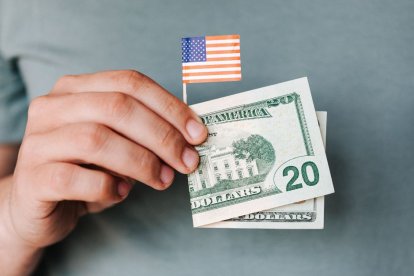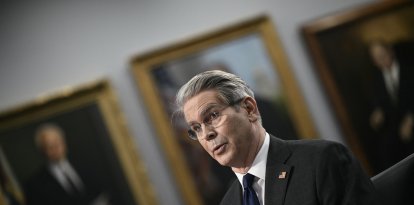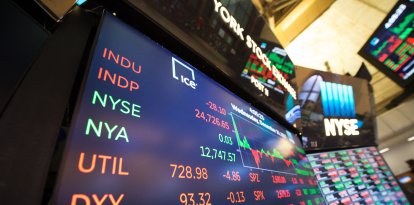The vast majority of middle class households view the nation's economy negatively
The Biden-Harris administration's economic policies continue to have negative effects on the middle class. According to a new survey, 73% of middle-income households now view the nation's finances in a bad light.

The $20 bill and the American flag.
The Biden-Harris administration's economic policies continue to have negative effects on the middle class. According to Primerica's Financial Security Monitor data for the third quarter of this year, 55% of middle-income households now rate their personal financial situation negatively, a significant increase of 6 percentage points from the previous survey. This is the highest level of negative perception since the survey began four years ago.
"Our survey results reflect the cumulative financial stress facing middle-income families ... we have to remember that many have fallen behind financially and are still recovering," said Glenn Williams, CEO of Primerica.
The impact of inflation
Households earning between $30,000 and $130,000 a year have been particularly hard hit, with 40% of respondents citing inflation as their top concern. This percentage represents an 8-point increase from the previous quarter's survey. Rising prices for essential goods, such as food, gasoline and rent, are putting increasing pressure on household budgets.
The overall view of the nation's economic health has also worsened considerably. According to the survey, 73% of middle-income households now view the U.S. economy negatively, up 1 percentage point from the previous report. In addition, uncertainty about the economic future has grown alarmingly, with 34% of respondents saying they are unsure of the direction in which the economy is headed, up 15 percentage points since last quarter.
Rising credit card debt
Another troubling finding in the report is the rise in credit card debt. Forty-four percent of respondents said they are more concerned about their credit card debt compared to a year ago, representing a 9-point increase from the previous quarter. This is the highest rate of concern since this question began being asked in March 2023.
"Families continue to list inflation as their No. 1 concern, with the stress it brings spilling over into worry about being able to afford everyday essentials like food or groceries and going to the doctor, as well as managing their mounting credit card debt," Williams noted.
RECOMMENDATION





















